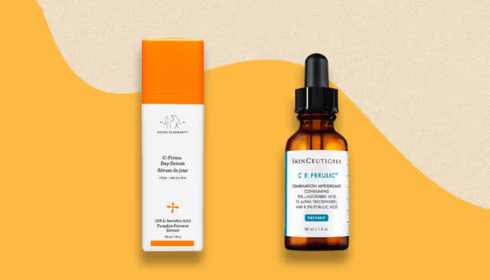Serums have become a staple in modern skincare routines, and for good reason. These lightweight yet potent formulas are packed with active ingredients that target specific concerns more directly than traditional moisturizers. But with so many options on the market and labels filled with complex chemical names, it can be hard to know what really makes a serum effective. Understanding the key ingredients—and what they actually do—can help you choose the right product for your skin’s unique needs.
One of the most well-known and widely used ingredients in serums is niacinamide, also known as vitamin B3. This multitasking powerhouse helps improve uneven skin tone, reduce the appearance of enlarged pores, brighten dullness, and strengthen the skin barrier. It’s suitable for nearly all skin types, including sensitive or acne-prone skin, and works well both as a standalone and in combination with other active ingredients. If you’re looking to add a serum to your routine but aren’t sure where to start, a formula containing niacinamide is a safe and versatile option.
Another hero in the world of serums is hyaluronic acid, a naturally occurring substance in the skin that can hold up to 1,000 times its weight in water. This ingredient is especially valuable for its intense hydrating properties. When applied topically, hyaluronic acid helps attract and retain moisture in the skin, making it appear plumper, smoother, and more radiant. It’s particularly effective in serums because of their ability to penetrate deeper into the skin, allowing the hydration to go where it’s most needed. Hyaluronic acid is ideal for dry or dehydrated skin, but oily and combination skin types also benefit from its lightweight, non-greasy texture.
Beyond these two stars, other ingredients can add significant value to a serum depending on your skin goals. For example, vitamin C, usually in the form of ascorbic acid or a stable derivative, is celebrated for its antioxidant properties. It helps protect the skin from environmental damage, stimulates collagen production, and brightens hyperpigmentation. A well-formulated vitamin C serum can be transformative when used consistently, particularly in the morning under sunscreen.
Peptides are another important class of ingredients found in more advanced serums. These short chains of amino acids serve as building blocks for proteins like collagen and elastin, which are essential for maintaining firmness and elasticity in the skin. Peptide-based serums are especially popular for anti-aging purposes, helping to reduce the appearance of fine lines and encourage smoother texture over time.
If your skin tends to break out or react easily, look for zinc or azelaic acid in your serum. Zinc helps calm inflammation and regulate oil production, while azelaic acid has both antimicrobial and brightening properties. These ingredients are often found in serums designed for acne-prone or sensitive skin, offering results without the harshness of more aggressive treatments.
It’s also worth noting the importance of formulation. A serum’s effectiveness doesn’t rely solely on individual ingredients, but on how they’re combined, stabilized, and delivered to the skin. Some ingredients, like vitamin C and retinol, require careful formulation to remain stable and potent over time. Others, like hyaluronic acid, need to be presented in the right molecular weight to ensure they penetrate rather than just sit on the surface.
When choosing a serum, consider your top skin concern and let that guide you. Don’t feel pressured to use everything at once. Often, less is more—especially when the product is well-crafted. Layering too many actives can lead to irritation or even cancel out the benefits of each. Starting with a single effective serum and evaluating your skin’s response is the most reliable way to build a smart and sustainable skincare routine. And if your concern stems from a hormonal imbalance—like persistent breakouts or uneven texture—selecting serums with calming, balancing ingredients can support your skin without overwhelming it.
In the end, serums are all about focus and efficiency. They deliver concentrated ingredients to address concerns like dullness, dryness, wrinkles, or breakouts in a targeted way. And while it’s tempting to chase trends, knowing what’s inside the bottle—niacinamide, hyaluronic acid, peptides, vitamin C—makes all the difference in getting results that are visible and lasting. Your skin will thank you for taking the time to understand what it really needs.

